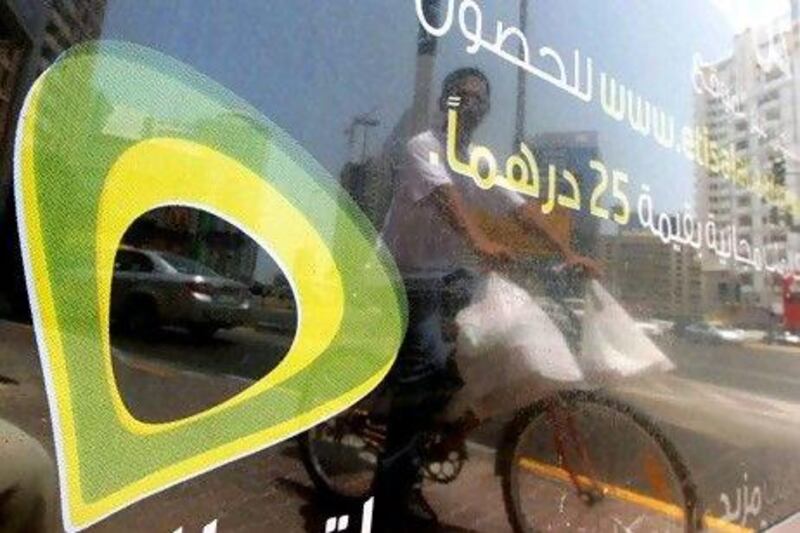Etisalat's Indian unit could face a US$1.6 billion (Dh5.87bn) fine for alleged foreign exchange violations related to the sale of wireless permits. India's Enforcement Directorate, which has authority over foreign exchange fraud and money laundering, imposed the 70bn rupee fine on Etisalat DB Telecom India for various charges that it says violate the Foreign Exchange Management Act 1999, the Press Trust of India reported.
The penalty had been ordered for "suspected contravention" of foreign exchange rules inside and outside India by the company.
"Neither Etisalat nor Etisalat DB have received any official communication and is therefore unable to comment at this time. Etisalat … wishes to reiterate it always abides by the laws and regulations of the markets in which it invests," the company said. Etisalat owns 45 per cent of Etisalat DB.
Etisalat DB has been given 30 days to explain why the fine should not be levied on it, the agency said.
Etisalat acquired its stake in Swan Telecom, its Indian unit's former name, for $900 million in March 2009 in a deal that included management control.
The remaining 55 per cent is held by the Indian companies Dynamix Balwas Group and Genex Exim. The move by India's Enforcement Directorate is the latest blow to the company's Indian operations.
In December, it paid a $2.2m penalty to the Indian government for failing to launch second-generation mobile services on time.
Etisalat DB was also last year named in a government report that uncovered the sale in 2008 of cellular operating licences under a "first-come, first-served" process that netted the government 124bn rupees.
It is alleged that some licences were awarded to ineligible participants, which in turn are said to have sold their stakes at prices higher than what they had paid the government.
An auction might have netted the government as much as $39bn, according to some estimates.
The controversy forced Andimuthu Raja, India's telecommunications minister, to resign from his post, and prompted the arrest of Etisalat DB's vice chairman, Shahid Balwa, in February.





